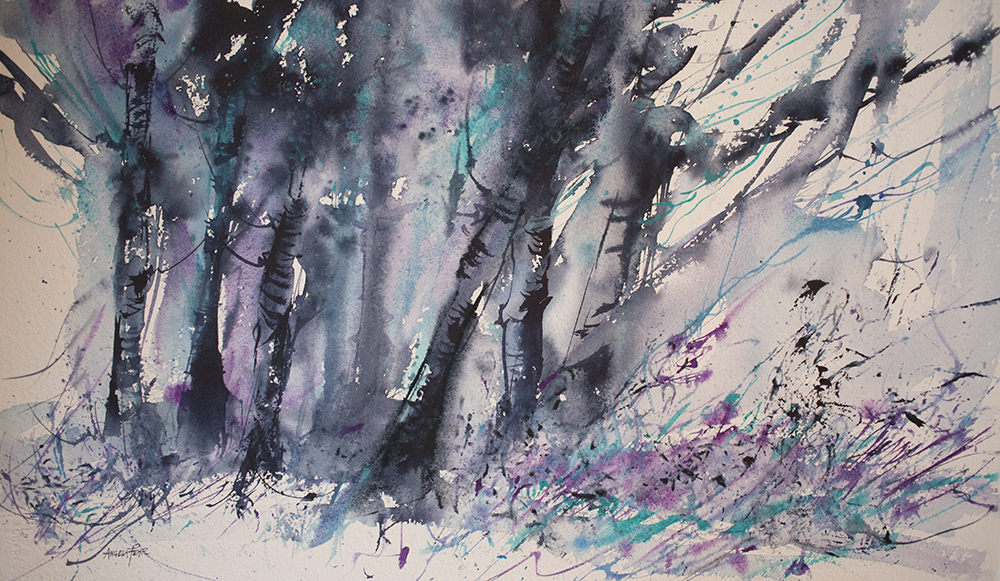Stages of Mastery in Watercolor
The longer I paint, the more comfortable I have grown with watercolour. It's a natural progression that is universal to all "stubborn artists." If you don't give up, you get to master watercolour! Isn't that great news? There are some natural stages in the watercolour journey that seem to be universal to artists, stages that will affect your ability to express yourself in watercolour, and help you know whether you should be focusing on style or technique.
The Competence Ladder
I had never heard of the competence ladder until one of my students described it to me, and I love the analogy it creates to help understand the learning process:
- Unconscious incompetence: New to painting, most of what you are creating (when it pleases you) is accidental, which makes it hard to reproduce success. Your style is hinted at in your interests and influences, more than in your body of work.
- Conscious incompetence: This is where you start to realize how far you have to go. Many students give up at this point because it can feel so hard, and successful outcomes can often be more rare than in the unconscious incompetence stage. The sheer volume of the knowledge you need to learn feels overwhelming, and you might not know what to focus on to learn first. While you might be thinking it's important to start developing your style, the most important thing you can do to get to the next level is to put a lot of hours into painting which will grow your technical skills.
- Conscious competence: Your hard work starts to pay off and you are better able to plan and anticipate your outcomes. You start to think more about your personal style and look for ways to express yourself through your paintings.
- Unconscious competence: You've mastered the medium to the level where it feels easy and natural. This is when things get really fun! As your brain is less occupied with technique, you are able to focus your full attention on self-expression. Your personal style is free to be more fully revealed. This is what makes it easier to be playful and authentic in your creativity, and it's worth all the struggle of the previous three stages.

But I Have so Far to Go!
If you're reading this, you might be feeling discouraged if you see yourself in one of those early stages. So far to go! If I had known how much I didn't know when I started painting, I might have been tempted to quit, too. That's why I believe in moving the goal posts; actually, that's a great analogy. Not every play can be a touchdown. Small gains should be celebrated. Mistakes can be acknowledge to be evidence of learning in action. Success doesn't always mean the painting turns out; it might just be a small insight into a better method of brush handling, a new colour combination, or a "what not to do next time."
Let Me Be Your Mentor!
I teach to all of these stages in my online courses at learn.angelafehr.com If you're working in stage 1 or 2, you can build technique with step-by-step lessons that teach watercolour technique and artistic principles (email me for your personal recommendation), and I serve my stage 3 & 4 students with my new Watercolor Mastery course. It's been absolutely thrilling to see students having breakthroughs right before my eyes in the interactive student groups during the six week course intensive. Watercolour Mastery will be reopening for enrollment in October, with 2 free prep sessions, but you can join the waitlist here.

